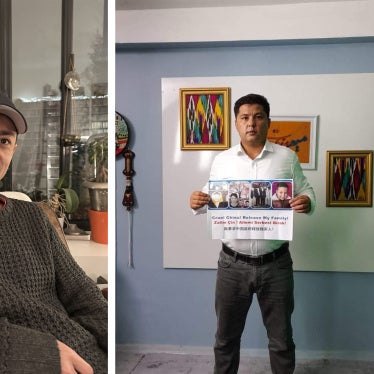Maya Wang is Asia researcher at Human Rights Watch.
Since leading Guangzhou rights activist Guo Feixiong was detained on August 8, 2013, his lawyers have had no success visiting him. After their sixth attempt failed on October 11, the lawyers filed a complaint with prosecutors on October 15. During that process, they finally learned that Guo, who had been detained on the dubious charges of “gathering crowds to disturb public order,” had finally been formally arrested.
According to the newly revised Criminal Procedural Law, which came into effect on January 1, Guo’s lawyers should have free access to their client. Lawyers’ access was hailed by China’s official media as one of the major “bright spots” in protecting the rights of criminal suspects. According to article 37 of the Criminal Procedure Law, lawyers must be able to access their clients without prior appointment or official permission, and such access should be arranged within 48 hours. But there is also a dangerous loophole: if a case is deemed to involve endangering national security, terrorism, or major bribery, access to lawyers can be denied. Police can do so arbitrarily, and there are few ways to challenge such a decision.
This is the legal black hole into which Guo’s case is falling. Although he is charged with a crime that has nothing to do with national security, the police told his lawyers that Guo’s case was “related” to another one in which suspects were charged with such crimes—thus depriving him access to his lawyers. However, the police have not made a credible explanation of how Guo’s case is one involving national security. Guo’s lawyer filed an administrative lawsuit against the police for violating the Criminal Procedure Law, but the court refused to accept the case. In short, Guo’s case illustrates the extraordinary, unchecked power of China’s security apparatus and deeply politicized judicial system.
The Chinese government should immediately release Guo, who is at serious risk of torture in detention, an endemic problem. The legal maze of Guo’s case shows that until the government closes this loophole in the Criminal Procedure Law, all claimed reforms need very close scrutiny.







